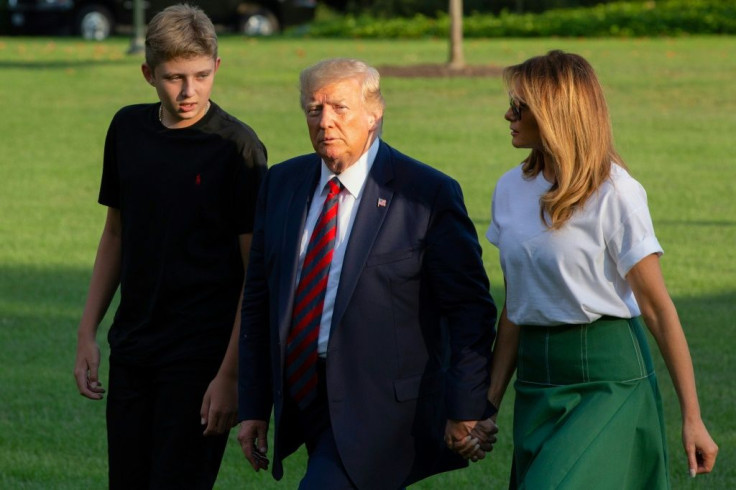COVID-19 Immunity: For How Long?

How long immunity lasts after a COVID-19, or SARS-CoV-2, infection is something that many studies are trying to determine. But it’s a question that may not be answered for some time, William Moss, MD, told Medical Daily.
“[Since] we’re only 10 months into the pandemic … we still have a lot to learn, particularly about long-term immunity,” said Dr. Moss, executive director of the International Vaccine Access Center at the Johns Hopkins Bloomberg School of Public Health.
A recent study out of the University of Arizona (UA) suggested that immunity from a COVID-19 infection can last at least five to seven months. In an article published by UA, Deepta Bhattacharya, PhD, an associate professor of immunobiology, said that, although seven months is the longest the study could confirm immunity lasts, “we know that people who were infected with the first SARS coronavirus, which is the most similar virus to SARS-CoV-2, are still seeing immunity 17 years after infection. If SARS-CoV-2 is anything like the first one, we expect antibodies to last at least two years, and it would be unlikely for anything much shorter than that.”
Let’s talk immunity
Dr. Moss said the UA study findings are what he would expect at this point, and that there is hope for even longer immunity. “It's not unreasonable to expect that immunity to this coronavirus is similar to other coronaviruses. So, we could expect that people will be protected for one to two years after infection, but it's possible that people who had severe SARS-CoV-2 could be protected for longer [because] … they had a stronger immune response. For people who had very mild or asymptomatic infection and didn't know they were ill, it's possible that their immunity would only last maybe six months to a year.”
Another reason immunity lasts longer or shorter for different people is something called “ heterogeneity,” which means we have different immune responses because our bodies are different. Older adults tend to have shorter periods of immunity after an illness because their immune system has aged and doesn’t work as well as when they were younger. People with health problems may also have a harder time mounting an immune response strong enough to fight an illness.
The vaccines
So, even though “natural infection induces a stronger immune response than vaccines in general … we have to develop vaccines that are even better than natural immunity,” Dr. Moss said. One method vaccine makers use is to add adjuvants to a vaccine. Adjuvants help the vaccine produce a stronger immune response in the body. This is especially helpful for the elderly or chronically ill, whose immune systems might not react as strongly to a vaccine that doesn’t have adjuvants, said Dr. Moss.
“I think we’ll know in November or December whether some of these early [vaccines] work,” said Dr. Moss. “It may very well be that the first vaccines that get approved are not ultimately the best vaccines. The [vaccines] that are leading the charge, these messenger RNA vaccines, for example, they were really easy to design and make. Whereas some of the inactivated viral vaccines are harder to make. And some of those [inactivated vaccines] are the ones that have adjuvants added to them.”
But do you need a vaccine if you’ve already had the virus?
Dr. Moss said that he hasn’t seen any guidelines around antibody testing as it relates to vaccination for SARS-CoV-2. But since we don’t know how long antibody protection lasts with this coronavirus, “it's often simpler in those situations just to vaccinate rather than to do [an antibody] test and then vaccinate,” he said.
“It’s possible that if [the vaccine’s] protective immunity only lasts a year or two that [we could see] a recommendation that individuals get revaccinated against SARS-CoV-2 every year or every two years.”
Could I get COVID-19 again?
To document a true reinfection with SARS-CoV-2, “you'd have to genetically sequence the first virus and genetically sequence the second virus and show that they're different,” said Dr. Moss. “There have been case reports of people being reinfected with SARS-CoV-2 where they had a very well-documented first and second infection. But I would expect that most people upon re-exposure would have a very rapid, strong immune response that would limit the disease severity.”
He added, “I would say it's very, very likely that if you test positive on an antibody test now, you are protected, certainly against having severe disease, if not mild disease or even a symptomatic infection.”
The take home
It’s going to be a while before we know how long immunity lasts after a COVID-19 infection or a vaccination against COVID-19. But the researchers are hopeful that immunity lasts longer than they are currently able to measure.



























